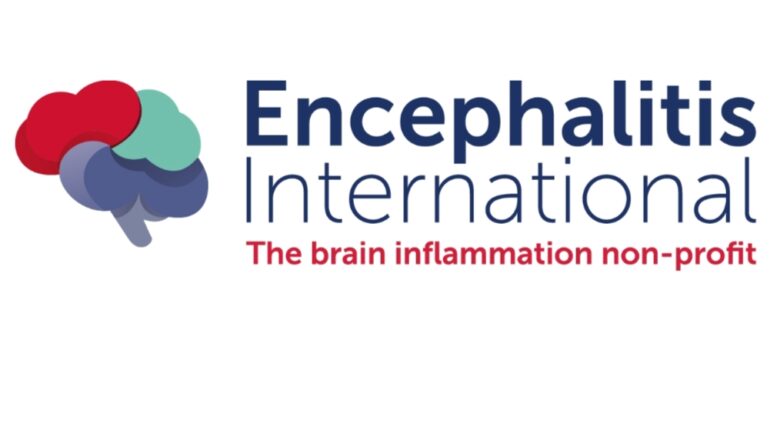Here Is – How you can get vaccinated for Encephalitis, even in remote areas with India’s Universal Immunisation Programme
MUMBAI, 29 APRIL, 2025 (GPN): This World Immunisation Week, Encephalitis International launches a global campaign, “Preventing Future Encephalitis: Climate Change and Infectious Disease,” to promote the power of immunization against vaccine-preventable diseases including the rising threat of encephalitis. The campaign emphasizes the urgent need for increased awareness of how climate change is exacerbating the risk of encephalitis in India and globally.
Vaccines are one of humanity’s greatest achievements, saving 154 million lives globally since 1974. Immunization averts millions of deaths annually from diseases such as measles, polio, tetanus, hepatitis B, and diphtheria. Beyond preventing disease, immunization also yields significant economic benefits by reducing healthcare costs associated with treatment and hospitalization, and by fostering healthier, more productive populations.
However, outbreaks of vaccine-preventable diseases, including measles, meningitis, and encephalitis, are increasing globally. Diseases like diphtheria, once well-controlled, are also at risk of re-emerging. Global health organizations, including the World Health Organization (WHO) and UNICEF, are calling for people to get vaccinated, sustained political attention and investment to strengthen immunization programs and protect the progress made over the past 50 years.
“Vaccines have saved more than 150 million lives over the past five decades,” said WHO Director-General, Dr Tedros Adhanom Ghebreyesus. “Outbreaks of vaccine-preventable diseases are increasing around the world, putting lives at risk and exposing countries to increased costs in treating diseases and responding to outbreaks. Countries with limited resources must invest in the highest-impact interventions – and that includes vaccines.”
Dr Ava Easton, Chief Executive of Encephalitis International, said, “It is vital that people seek advice about vaccines and other routine immunisations, for themselves and those they care for. As the earth warms, new and emerging infections, including those that cause Encephalitis, will continue to rise. The vectors that can spread infectious diseases like mosquitoes and ticks are moving to new communities and environments. The situation is complicated as we begin to live in closer proximity to animals, and our more rural areas decrease. All these factors affect public health, sometimes dramatically.”
Dr Netravathi M, Professor, Department of Neurology, National Institute of Mental Health & Neurosciences (NIMHANS), Bangalore, said, “Immunisation is not just a personal choice – It’s a public responsibility that protects generations. Vaccines are a gift of science that protect us today and promise a healthier tomorrow. A vaccinated world is a safer world – each shot is a step towards freedom from preventable diseases. Through every drop of Vaccine, we build a wall against disease and a bridge for a brighter future.”
India’s Universal Immunisation Programme (UIP)
India’s Universal Immunisation Programme (UIP) is one of the largest public health programmes globally, targeting approximately 27 million infants and 30 million pregnant women annually. The UIP provides vaccines free of charge against 12 vaccine-preventable diseases:
- Tuberculosis (TB)
- Diphtheria
- Pertussis (Whooping Cough)
- Tetanus
- Poliomyelitis
- Measles
- Hepatitis B
- Haemophilus influenzae type B (Hib)
- Japanese Encephalitis (JE)
- Rotavirus Diarrhoea
- Rubella
- Pneumococcal Pneumonia
The vaccines provided under the UIP include:
- Bacillus Calmette–Guérin (BCG) for TB
- Oral Polio Vaccine (OPV)
- Inactivated Polio Vaccine (IPV)
- Pentavalent Vaccine (combining Diphtheria, Pertussis, Tetanus, Hepatitis B, and Hib)
- Measles-Rubella (MR) Vaccine
- Rotavirus Vaccine
- Pneumococcal Conjugate Vaccine (PCV)
- Japanese Encephalitis Vaccine (in endemic regions)
- Tetanus and Diphtheria (Td) Vaccine for adolescents and pregnant women
- Vitamin A Supplementation
Encephalitis, a condition caused by infectious and autoimmune causes in individuals, is a deadly brain inflammation that can affect anyone regardless of age, sex or ethnicity. It can lead to severe neurological consequences, including permanent brain injury. It arises either from an infection invading the brain, such as Japanese Encephalitis, Scrub Typhus, which are more prevalent in India, or the immune system mistakenly attacking the brain (Autoimmune Encephalitis). According to a recent survey in 2024, 1,548 Japanese Encephalitis cases were reported from 24 states and Union Territories.
Encephalitis International is hosting a Climate and Encephalitis webinar on 29th April to highlight the link between climate change and the increased risk of encephalitis, and how vaccination plays a critical role in prevention. The campaign will focus on nine infectious causes of Encephalitis, five of which are vaccine-preventable: Japanese Encephalitis, Influenza, Measles, Mumps, and Rubella. Other causes, such as Dengue, Chikungunya, Oropouche, and West Nile Virus, are also spreading faster due to climate change. Increased vaccination coverage not only protects individuals but also contributes to herd immunity, providing indirect protection to the broader community.
Encephalitis affects 1.5 million children and adults every year globally – three people every minute, yet almost 77% of the population are unaware of the condition. The lack of awareness leads to delay in diagnosis and treatment, and poorer patient outcomes. With climate change increasing the risk of infectious diseases, the importance of timely immunization is crucial. Raising awareness, improving healthcare infrastructure and following WHO’s global health recommendations are essential steps towards improving the quality of life for all. Immunization is not just about prevention, it is more about protection, progression and the path to saving lives.
About Encephalitis International
Encephalitis International is a life-saving, multi-award-winning non-profit and the leading global resource providing support and information, raising awareness of the condition, and collaborating in research.
Since its launch in 2014, World Encephalitis Day has reached directly over 215 million people worldwide. Encephalitis International leads World Encephalitis Day on 22 February every year and urge people to wear red on the day and use #Red4WED and #WorldEncephalitisDay on social media (visit www.worldencephalitisday.org to find out more).


Be the first to comment on "Climate change is leading to more vaccine-preventable diseases"